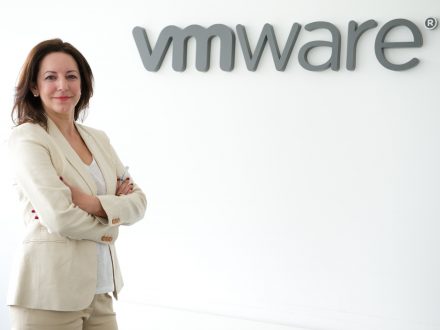VMware by Broadcom: ‘We Aim to Transform the Relationship with the Ecosystem and be More Selective’

We spoke with María José Talavera, managing director of Broadcom for Spain, who reviews the changes experienced by the subsidiary over the last twelve months.
Last week the VMware Explore conference was held in Barcelona. As we published a few days ago, the company has experienced a year of transition under the Broadcom umbrella, with a series of important changes at different levels promoted by Hok Tan, president and CEO of the manufacturer.
Precisely to talk about all this, we had the opportunity to meet with María José Talavera, managing director of VMware by Broadcom for Spain. Throughout previous editions, it has always been customary to be able to chat with the director, and this is one of the things that has not changed after the purchase of Broadcom, for which we are especially grateful.
Before getting down to business, Talavera wanted to send a message of support and a very special remembrance to all those affected by the DANA in the Valencian Community and Castilla la Mancha. Emotionally, she thanked the people who have gone out of their way to help, ‘a 10 for solidarity’.
A comeback to what made VMware strong
VMware by Broadcom, as it is officially called, has focused on unifying various solutions and technologies on a single platform, VMware Cloud Foundation (VCF). So much so that the executive explained that 90% of the vendor’s development investment has been put into this platform: ‘I don’t want to say that we have gone back to our roots, but we have gone back to a strategy that made us strong in the past, the virtualisation of computing capacity. At that time we realised that these technologies could be taken to other areas of the datacentre such as storage and communications networks.

It is true that over the years VMware has expanded these capabilities by adding automation and security, which are the seeds of VCF. However, there was no complete integration of this entire portfolio, something that Cloud Foundation 9 has achieved.
According to Talavera, this has been one of the most important decisions of Broadcom’s president and CEO, that of unifying the solutions not only at a technological level but also as a licensing model.
All this under a private cloud environment, which has always been VMware’s big bet: ‘Companies have realised, as we warned years ago, that the public cloud has a series of hidden costs and disadvantages such as the lack of control of corporate information and regulatory compliance in each region. And VCF makes it possible to build private clouds with the ease and scalability of public clouds’.
Indeed, version 9 brings these features to the table: ‘In this version we have made an effort to simplify and unify the different components to encompass everything in a platform as a service, on a pay-as-you-go basis. We want to offer a platform that is easy to deploy, easy to consume and easy to operate,’ she said.
The change in the licensing model, a controversial decision
The integration of different components into a single platform has also had a major impact on the licensing model. Whereas until VCF 5.2, licences for each component could be purchased separately, from VCF 9 onwards only a single licence can be purchased on a pay-per-use basis, which will cost customers more: ‘It’s part of that simplification strategy that Tan indicated. Here I have to explain that prices have not been multiplied by three, as I have read and heard in some places. This is a black legend that does not correspond to reality. In fact, we have not lost any customers to date either. Moreover, the largest contract in the company’s history has been sold this year with this new licensing model’.
![]()
It is true that some companies may not need to use all the capabilities now offered in a unified way by the VCF platform, but VMware by Broadcom’s vision is that in the future it will be good for them to have all the components available.
Another change that has been in use for months is the metering by process cores or ‘cores’ used (and not CPUs), so that you will only pay according to the computing needs required in each project or, in other words, the ‘cores’ contracted.
Valuable partners and no resellers
VMware’s channel ecosystem has also been impacted by the Broadcom acquisition. According to Talavera, ‘We want to transform the relationship with the ecosystem and be more selective. Our approach is to support those partners that add value through the services they offer around our technology ‘.
This obviously excludes resellers who simply put up a margin to make a resale: ‘Obviously, companies whose fundamental metric is profitability, turnover, will be penalised. Many of these resellers are leaving and they are the ones feeding the dark myth, but that’s the way it is: our focus is now on partners who bring value to companies around our software’.
Internal Changes
Once again, the Broadcom CEO’s focus on delivering a unified platform has also had an impact on the workforce. A voluntary incentivised departure plan was put in place a few months ago, she said: ‘We haven’t fired anyone, they’ve left on a very attractive package. In fact, there were people who signed up voluntarily and we wanted them to stay on because we were counting on them. This has happened in Spain, but I know it has also happened in other countries. ‘